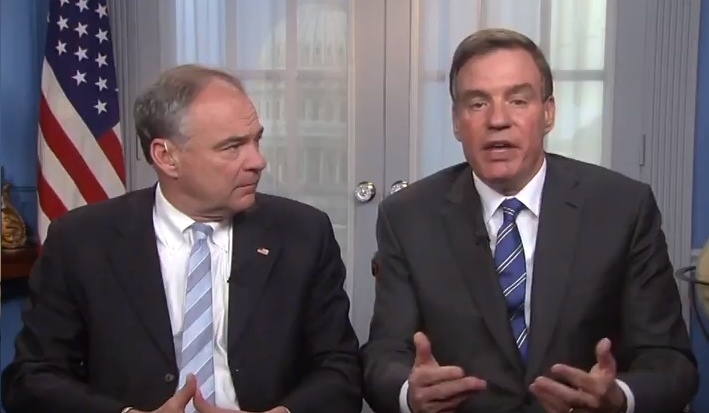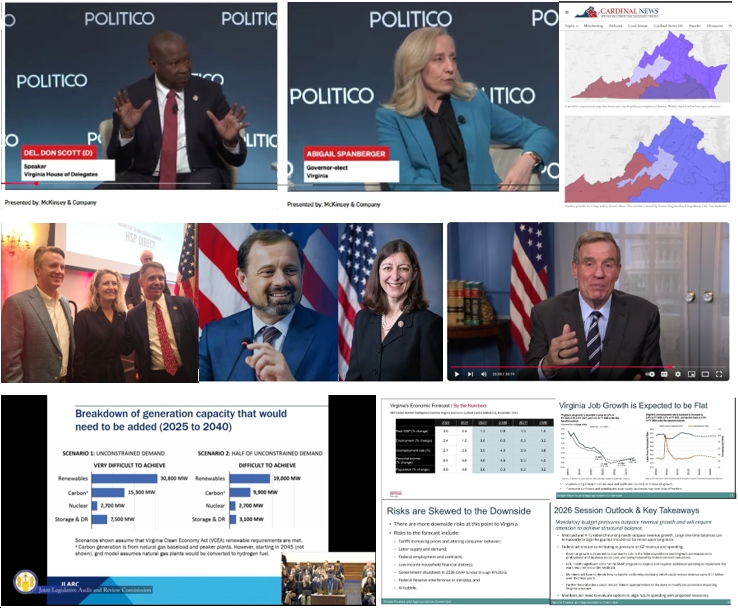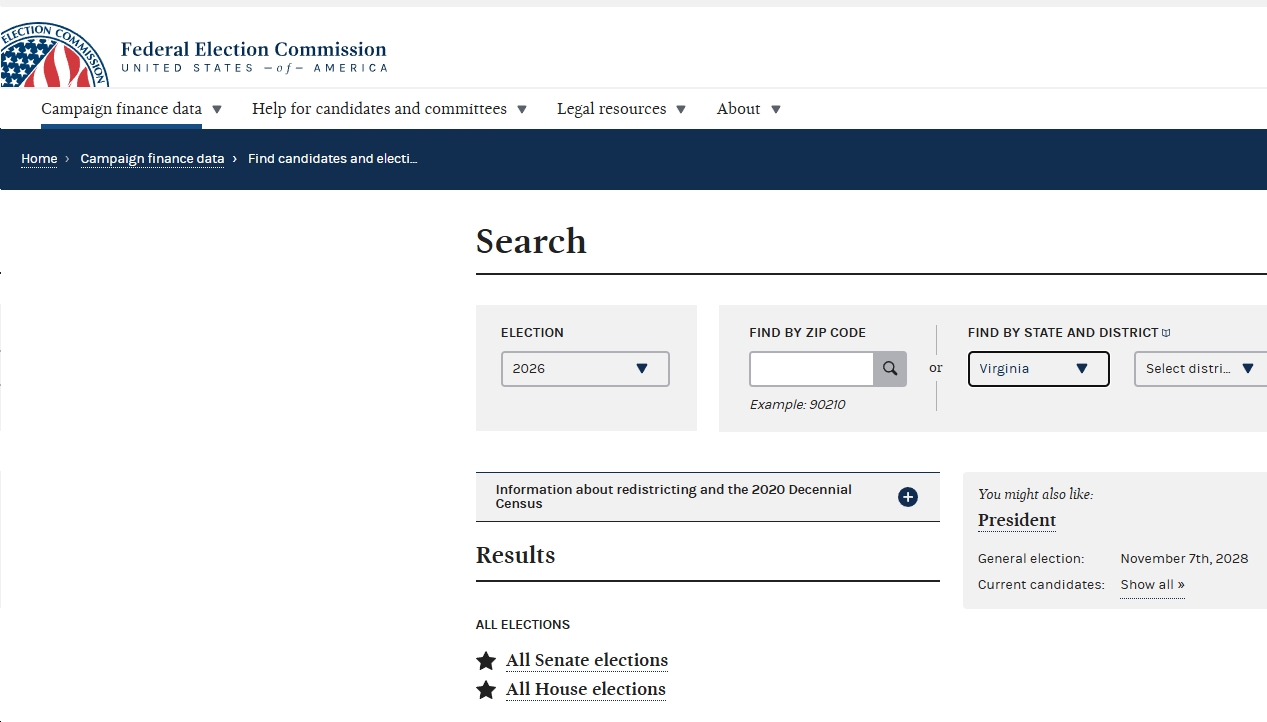See below for a transcript and video of Sen. Mark Warner questioning Federal Reserve Chair Jerome Powell a little while ago. Also, see below for a press release from Sen. Warner’s office.
Sen. Warner: “I want to start, Chairman Powell with some of the comments I think you’ve made now, I want to reinforce them. I think we all realize and understand that losing a job at any point in your lifetime is an enormous challenge. Losing a job in the midst of a recession…or depression could be devastating. I point to the survey that the Fed put out last week that literally said 40 percent of our fellow Americans who make less than $40,000, 40 percent of those folks had their jobs disappear between February and March. We all know as well that 36 million Americans were unemployed. We’re at depression levels of unemployment. And I think statistics have always shown that particularly losing a job during a recession could actually incur long-term income losses up to 19% over the coming decade…some of the statistics that I’ve seen. So I’d…like you to take a moment to say…we have to measure overdoing versus underdoing, but with this type of devastation, with this type of pain disproportionately hitting low- and moderate-income Americans, can you speak to us of the the results and the long-term scars this would present if we don’t take aggressive action?”
Chairman Powell: “…There is clear evidence that you have a situation where people are unemployed for long periods of time, that can permanently weigh on both their careers and their ability to go back to work, and also weigh on the economy for years. Equally so with small and medium-sized businesses, which are the jobs machine of our great economy. If we allow unnecessary, avoidable insolvencies because of effectively a natural disaster, that too will destroy the work of many families and generations…It’ll weigh on the economy. So those are things to keep in mind. As I said earlier, this is the biggest response by Congress ever and the fastest and the biggest from us, and still this is the biggest shock we’ve seen in living memory and the question looms in the air, is it enough?”
Sen. Warner: “And I would argue that historically, whether it’s our country or other nations, that governments tend to undershoot during these periods. And we now have 36 million Americans without work and 40% of the folks under $40,000 a year losing their work that this scarf could be deep and wide…”
WARNER QUESTIONS FED CHAIRMAN, WARNS OF ECONOMIC CONSEQUENCES IF CONGRESS FAILS TO SUPPORT WORKERS
~ Senator presses Federal Reserve Chairman on Fed statistic showing 40% of workers making under $40,000/year have lost their jobs ~
WASHINGTON – Today U.S. Sen. Mark R. Warner (D-VA) participated in a virtual Senate Banking Committee hearing on the coronavirus economic response with Federal Reserve Chairman Jerome Powell and Treasury Secretary Steven Mnuchin. In his questioning of Chairman Powell, Warner highlighted the dire economic conditions facing many Americans and pressed the Fed Chairman on whether Congress and the Fed were doing enough to help everyday Americans and prevent an economic depression.
In his remarks at the beginning of the questioning period, Warner said, “I point to the survey that the Fed put out last week that literally said 40 percent of our fellow Americans who make less than $40,000 – 40 percent of those folks – had their jobs disappear between February and March. We all know as well that 36 million Americans were unemployed. We’re at depression levels of unemployment and I think statistics have always shown that particularly losing your job during a recession could actually incur long-time income losses, up to 19 percent over the coming decade, according to some of the statistics that I’ve seen.”
In response to Sen. Warner’s question about what would happen if Congress fails to take appropriate action, Chairman Powell said, “…There is clear evidence that when you have a situation where people are unemployed for long periods of time, that can permanently weigh on both, their careers and their ability to go back to work, and also weigh on the economy for years – equally so with small and medium-sized businesses, which are the jobs machine of our great economy. If we allow unnecessary, avoidable insolvencies because of, effectively, a natural disaster, that too will destroy the work of many families and generations but it will also weigh on the economy.”
With coronavirus-related job losses now exceeding 36 million, Sen. Warner has been outspoken on the need for Congress to take bold, large-scale action to assist struggling American workers and prevent further economic devastation. Last week, he took to the Senate floor to call on his colleagues to pass legislation that would provide paychecks to laid-off and furloughed workers.
In April, Sens. Mark R. Warner (D-VA), Bernie Sanders (I-VT), Doug Jones (D-AL) and Richard Blumenthal (D-CT) released a proposal to establish a ‘Paycheck Security’ program to cover the wages and benefits of employees of affected businesses and non-profits until the economic and public health crisis is resolved. The Senators’ proposed plan would cover the full payroll and benefits of workers at distressed businesses and non-profits, up to $90,000 per employee, for at least six months. The Paycheck Security plan would also provide funds to cover fixed operating costs such as rent, utilities, and insurance costs to help employers weather the economic crisis. The Senators released an extensive white paper detailing eligibility, verification, and other contours of their proposal, which is available here.
The full exchange between Sen. Warner and Chairman Powell is transcribed below:
Sen. Mark R. Warner: Thank you gentlemen. I want to start, Chairman Powell, with some of the comments I think you’ve made and I want to reinforce them. I think we all realize and understand that losing a job at any point if your lifetime is an enormous challenge. Losing your job in the midst of a recession or depression could be devastating. I point to the survey that the Fed put out last week that literally said 40 percent of our fellow Americans who make less than $40,000 – 40 percent of those folks – had their jobs disappear between February and March. We all know as well that 36 million Americans were unemployed. We’re at depression levels of unemployment and I think statistics have always shown that particularly losing your job during a recession could actually incur long-time income losses, up to 19 percent over the coming decade, according to some of the statistics that I’ve seen. So again, I would like you to take a moment to say – we have to measure overdoing versus underdoing – but with this type of devastation, with this type of pain disproportionately hitting low and moderate-income Americans, can you speak to us of the results and the long-term scars this would present if we don’t take aggressive action?
Chairman Jerome Powell: Thank you. I’d be glad to. So, there is clear evidence that when you have a situation where people are unemployed for long periods of time, that can permanently weigh on both, their careers and their ability to go back to work, and also weigh on the economy for years – equally so with small and medium-sized businesses, which are the jobs machine of our great economy. If we allow unnecessary, avoidable insolvencies because of, effectively, a natural disaster, that too will destroy the work of many families and generations but it will also weigh on the economy. So that those are things to keep in mind. As I said earlier, this is the biggest response by Congress ever, and the fastest, and the biggest from us, and still, this is the biggest shock we’ve in living memory and the question looms in the air of ‘is it enough?’
Sen. Warner: And I would argue that historically, whether it’s our country or other nations, that governments tend to undershoot during these periods, and we now have 36 million Americans without work and 40 percent of the folks under $40,000 a year losing their work, and this scar could be deep and wide.


















